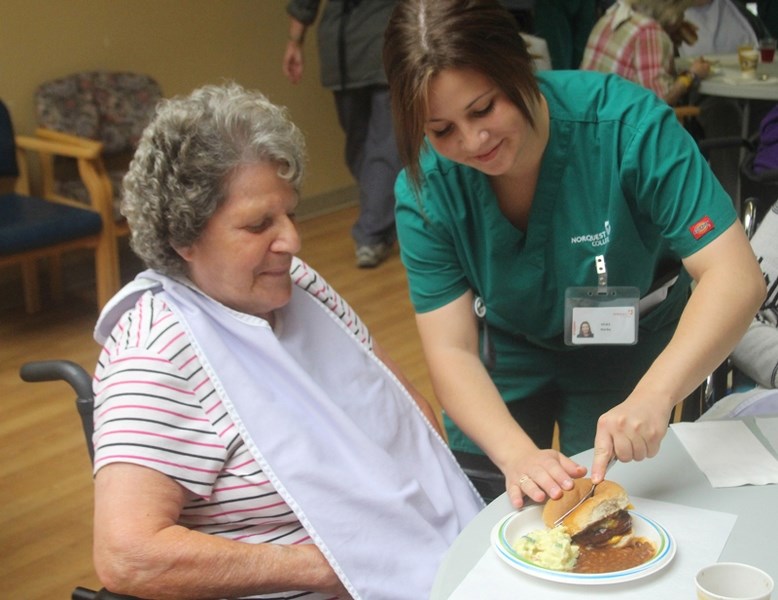Alberta is set to become the first province in Canada to regulate health-care aides under a professional college, a move the provincial government says will ensure Albertans receive high-quality care from qualified professionals. But in rural communities like Pincher Creek, some front-line workers are voicing concerns.
Beginning Feb. 2, 2026, the College of Licensed Practical Nurses of Alberta will be renamed the College of Licensed Practical Nurses and Health Care Aides of Alberta. The expanded body will oversee the registration, standards of practice and conduct, and continuing education of Alberta’s 40,000 health-care aides.
To use the title “health care aide” and provide care, individuals will need to meet approved education requirements, commit to ongoing learning, and obtain a practice permit. Those currently listed in the Alberta Health Care Aide Directory will be transferred to the college’s new register.
“Regulating HCAs under the Health Professions Act is a major step forward in strengthening Alberta’s health workforce and ensuring consistent, high-quality care across the province,” the Ministry of Primary and Preventative Health Services said in response to questions from Shootin’ the Breeze.
The province says the move will formalize the HCA profession, create a mechanism to address conduct concerns and offer patients confidence that care is delivered by professionals accountable to a regulatory body.
But some HCAs working in rural communities remain skeptical of the benefits.
Rural health-care aides voice concerns
Charleen Bruder, a 55-year-old HCA, said she sees the regulation more as a revenue-generating move than as a supportive measure for aides.
“We already get annual training from our facilities. Facilities also get government audits for abuse, our charting, proper use of equipment, cleanliness — everything we do gets audited,” Bruder said in an interview.
“So being under that umbrella just adds duties to our job description and gives the government authority to charge us for a licence, pretty much. That’s our thoughts.”
Bruder, who earned her certification through Bow Valley College and continues to receive annual education through her employer, is currently registered in the Alberta Health Care Aide Directory.
Bruder raised concerns about lack of awareness among HCAs about the coming changes. “They sent the email not as the health care directory, but from the college of LPNs — most of us found the email in the junk mail,” she said.
She noted that HCAs will be transferred to the new college register once regulation comes into effect, which she believes adds a fee without adding value.
“What they say they’re going to do for us is already being done,” she said. “We all think it’s just a way to add a fee for the government to get more money.”
Bruder said her co-workers are also not happy with the move.
“Everybody thinks it’s just a cash cow,” she said. “Everybody’s fairly insulted.”
Bruder noted that when licensed practical nurses were brought under a professional college, the cost of licensing started at $100 and has since risen to about $350, with additional insurance costs floating between $50 and $100. She fears HCAs will see the same pattern.
“Do they get anything different? Not really, just more of a workload,” she said of LPNs.
The provincial government has not yet released the expected cost, if any, of the new practice permits.
Long-standing rural challenges remain
The ministry confirmed that as of Dec. 31, 2024, 3,271 HCAs were employed in Alberta’s south zone, which includes communities such as Pincher Creek and Crowsnest Pass.
However, Bruder said staffing remains a challenge, especially in rural areas, and this change could discourage new entrants into the field.
“If you have to pay a fee, it’s making it harder for anybody to stay in the medical field,” Bruder said. “The more they put on, the more the medical field is strained, like the list of casual employees. Casual is not going to want to pay a fee to pick up a few days of work.”
She added that local issues like the lack of rental housing in Pincher Creek further complicate efforts to recruit workers, including foreign health-care workers recently brought in to help fill gaps.
“They’re always asking me if I have a room to rent, and I don’t,” she said. “So if the government wants to help, why don’t they help people get the degree instead of charging the ones that got the degree?”
While the ministry emphasized that regulation will offer HCAs professional recognition and clearer standards for career growth, Bruder said she doesn’t expect her daily work to change.
What regulation means for HCAs
Health-care aides support clients with personal care such as bathing, dressing and feeding, and also assist with transfers, mobility and monitoring vital signs. They often work under the supervision of licensed professionals and are key observers who help track changes in patients’ conditions.
The regulatory college will set professional and ethical standards, register HCAs and handle complaints of unprofessional conduct. According to Alberta Health, these changes are centred on public safety.
“The regulation is being introduced with a long lead time to support a smooth transition, giving health-care aides, employers and post-secondary institutions time to prepare,” the ministry said.
Still, Bruder is not optimistic about having much say in the process.
“They never let us do anything. Either you signed up or you never got hired,” she said. “So when they say ‘when regulation comes into force,’ it’s pretty much forcing — because we don’t have a choice.”




